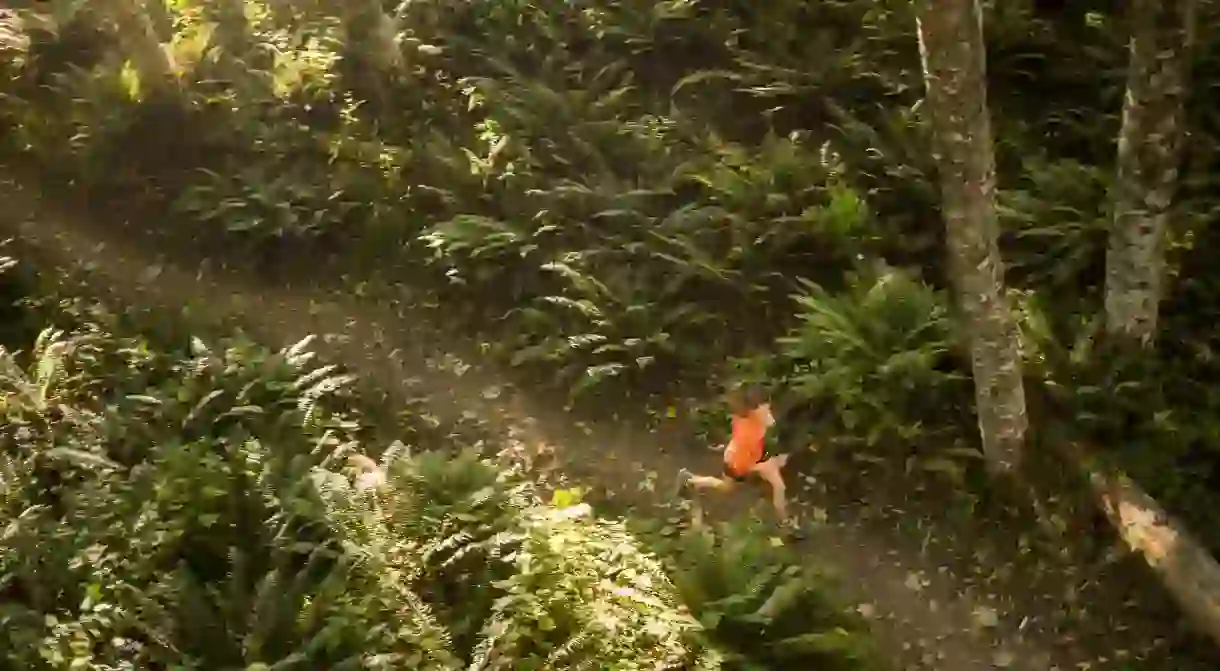Chuckanut's Krissy Moehl Running Her Own Race

In 2002, the organizers of the Chuckanut 50k decided to call it a day after 10 years. Fearing her local ultra would vanish, runner Krissy Moehl decided to take over the organization of the race and 15 years later that same relationship remains, with the race going better than ever.
“I was living in Seattle at the time, and I didn’t want Chuckanut to disappear so my then-partner and I took it over (officially in 2004),” Moehl says. “We actually separated two years later but I’ve carried on. You always have a special place in your heart for your first ultra.”
The Chuckanut 50k is a 50km (31 miles) race with the first and last parts made up of smooth running along the Interurban Trail, with the middle 30km (19 miles) featuring a beautiful 5,000ft (1524 metres) elevation and descent across Chuckanut Mountain Ridge in Bellingham, Washington, USA. The lollipop course showcases some of the stunning Pacific Northwest terrain and this year the event celebrates its 25th running.
Born and raised in Bow, Wash., in a family that far from embraced the outdoors, Moehl didn’t get into ultra running seriously until she was in her last year at college. She was encouraged to play sports—soccer, ballet, horseback riding—as a child but that was more a case of keeping her occupied than anything else. It wasn’t until her eighth-grade teacher told her to try out for track that she discovered something that became, and remains, an integral part of her life.
Running 800m (2625 feet) around a track, however, is one thing, 100km is something quite different. “I really started to enjoy where the running could take me,” Moehl says. “I always saw the hillsides and thought they were beautiful, but big distances changed my scope and how I looked at them. They became something to explore rather than admire, more about the journey than the destination.”

Listening to Moehl, her actual transition to longer distances, the addition of the prefix “ultra”, seems like a natural process. Training-wise she describes how it’s basically a matter of “getting used to running on tired legs.” So where training is concerned she advises those considering ultras for the first time to start back-to-back training days, with no rest day in between.
“If you run 12 miles, then run six the next day,” she says. “Once you run 20 miles, do 15 the next day, and so on. Get your body used to recovering and always listen to it, just when I think I have it figured out it’ll all change again. I’m still learning 16 years later, but I truly believe ultra came into my life to make me adaptable.”
That adaptability has been integral to not only keeping the Chuckanut 50k alive, but enabling it to blossom into something the local community has increasingly engaged with, embracing it as something they can celebrate and be a part of, whether it be simply coming down to watch the race, shovelling kit or making up part of Moehl’s team to help with planning. In her time as organizer, Moehl has introduced experiences from races around the world, such as trip timing and food trucks at the finish line. There will be 550 runners is this year’s race, significantly up from the “80 or so” when she ran her first.
Asked if she enjoys all the logistics as much as the running itself Moehl admits, “Some of my friends call me ‘spreadsheet’. I love having things in columns and rows—training plans, sheets and checklists, all ordered.” That order, those straight lines and rigid structures all sound completely at odds with the personality that loves going out running to explore the mountains nearby. “I’ve never thought of it that way,” she says. “I suppose I’m a woman of contrasts—I like dancing all night as much as being in bed and reading a book.”
Despite never planning to become the planner, it’s difficult to imagine Moehl handing over the reins anytime soon. The affection in which she speaks about the race is abundantly clear.
“This was never on my radar. I decided to take it over when I was 24 and I’ll be 40 this year,” she says. “Running has been a constant that has carried me through life. There have been times in the past when I have used running to get away from stuff, rather than toward something. I now use it as a resource to move through difficult situations in a healthy way, but it’s a conscious effort, it doesn’t always come naturally. Now I can totally depend on how my body responds to this race. Sometimes people get upset when they’re racing, they forget that they chose to do this in the first place. I’ll stop racing when I stop smiling and stop enjoying it.”
For information regarding the Chuckanut 50k, please head here.














